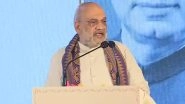Colombo, Apr 23 (PTI) Colombo, Apr 23 (PTI) The Sri Lankan government never expected the Easter Sunday bombings of such magnitude, Defence Secretary Hemasiri Fernando said Tuesday and asserted that it would have been "impossible" to protect a large number of churches in the country despite receiving prior intelligence about the attacks which killed 290 people, including 8 Indians.
Seven suicide bombers believed to be members of local Islamist extremist group National Tawheed Jamath (NTJ) carried out a series of devastating blasts that tore through churches and luxury hotels in Sri Lanka on Easter Sunday, in the country's worst terror attack.
No group has claimed responsibility for Sunday's attacks, but police have arrested 24 people - mostly members of an Islamist extremist group - in connection with the blasts that also killed 31 foreigners, including eight Indian nationals.
"It was quite impossible to protect a large number of churches last Sunday despite receiving prior information to these attacks," Fernando told reporters.
He said the government did not expect an attack of such magnitude to occur and the extensive measures to prevent the bombings despite would have been impossible.
"An emergency law is non-functional in this country since Sri Lanka is a democratic country. Therefore there is very little I can do" the Defence Secretary was quoted as saying by the Sunday Times.
Fernando noted that the state intelligence service had already informed the government of a small but organised and powerful criminal group operating in the country.
He said the FBI has already commenced investigations into the incident while the Interpol is expected to arrive in the country on Tuesday.
The Defence Secretary also said the government will not provide protection to hotels as it is an aspect which must be looked after by their respective security officials.
Fernando said the government had not provided security to hotels even during the civil war.
Interpol Secretary-General Jurgen Stock in a Twitter message has offered full support to the investigation being carried out by the Lankan authorities.
Meanwhile, Sri Lanka's president Maithripala Sirisena Tuesday gave the military sweeping police powers in the wake of the Easter bombings.
The military was given a wider berth to detain and arrest suspects — powers that were used during the civil war but withdrawn when it ended.
Prime Minister Ranil Wickremesinghe said he feared the massacre could unleash instability and pledged to "vest all necessary powers with the defense forces" to act against those responsible.
The suicide bombings struck three churches and three luxury hotels Sunday in the island nation's deadliest violence since a devastating civil war ended in 2009.
The blasts shattered a decade of peace in the island nation since the end of the brutal civil war with the LTTE.
The civil war ended with the defeat of the Liberation Tigers of Tamil Eelam (LTTE), which ran a military campaign for a separate Tamil homeland in the northern and eastern provinces of the island nation for nearly 30 years.
The LTTE collapsed in 2009 after the Lankan army killed its supreme leader Velupillai Prabhakaran. The war is thought to have killed between 70,000 and 80,000 people.
(The above story is verified and authored by Press Trust of India (PTI) staff. PTI, India’s premier news agency, employs more than 400 journalists and 500 stringers to cover almost every district and small town in India.. The views appearing in the above post do not reflect the opinions of LatestLY)













 Quickly
Quickly


